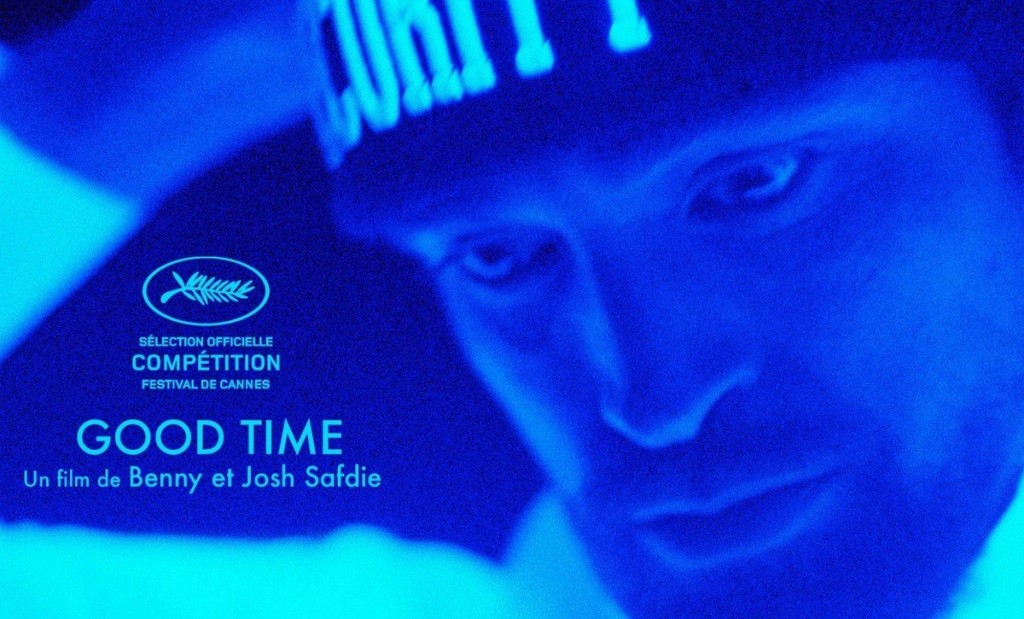Susan Granger’s review of “Good Time” (A24)
Determined to leave the “Twilight” franchise far behind, British actor Robert Pattinson is barely recognizable as a small-time criminal determined to break his mentally-challenged younger brother out of custody.
Cynically dubbed “Of Vice and Men” by those who recognize the modern-day reference to John Steinbeck’s classic 1937 novel about two displaced Depression-era migrant workers, it’s a gruesome, violent crime drama from street-savvy, guerilla-filmmaking siblings Josh and Benny Safdie (“Heaven Knows What”) from Queens, New York.
They’re outspoken advocates of “cinema verite,” emerging from the French New Wave that insisted on neo-realism. That means shaky, hand-held camerawork, natural lighting and unlikable, distressed characters mumbling insignificant dialogue while wallowing in depravity.
The pulpy, rambling story begins as Constantine “Connie” Niklas rescues his troubled brother Nicky (co-director Benny Safdie) from a psychiatric evaluation about an incident involving their abusive grandmother.
Connie wants Nicky at his side during a bank robbery, which goes wrong when a dye-pack explodes as they make their getaway, dousing them both in red. Bumbling Connie flees, but panicked Nicky falls into a plate-glass door and gets arrested.
Dwelling in a squalid, shadowy underground culture of drugs and thugs, scumbag Connie manipulates his girl-friend Corey (Jennifer Jason Leigh) to max out her mother’s credit cards for Nicky’s $10,000 bail.
But then a brawl with another inmate at Rikers Island sends Nicky into a hospital. When Connie tries to stage an escape, he inadvertently springs another patient, Ray (Buddy Duress).
They end up hiding out with teenage Crystal (Taliah Webster), who accompanies them to a dingy, deserted Adventureland theme park in search of Ray’s hidden stash of liquid LSD.
That’s where they encounter Oscar-nominated actor Barkhad Abdi, the emaciated Somali immigrant who played the pirate threatening Tom Hanks’s “Captain Phillips” (2013). Photographed in a black light, he has an eerie purplish-blue glow; his brief, ill-fated appearance is perhaps the most memorable.
On the Granger Movie Gauge of 1 to 10, “Good Time” is a far-fetched, feverish 5, bastardizing the jailbird term for days deducted from an inmate’s sentence for good behavior while in prison.

